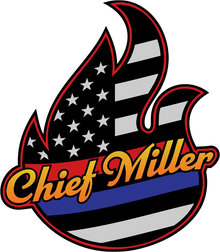Introduction
First responders serve on the front lines, facing unpredictable and often dangerous situations. Their ability to address medical needs swiftly can mean the difference between life and death. This makes the choice of essential medical kits for first responders crucial. Each role, whether it’s firefighters, EMS personnel, or police officers, has unique medical supply needs depending on the scenarios they encounter.
Understanding First Responder Roles
Types of First Responders
First responders mainly include firefighters, Emergency Medical Services (EMS) personnel, and police officers. Each group has specific training and faces different emergencies, which influences the type of medical supplies they require.
Unique Medical Needs of Each Role
Firefighters often face situations involving burns, smoke inhalation, and trauma from structural collapses. Therefore, their essential medical kits should include items specifically designed to address these types of injuries. EMS teams frequently handle a wide variety of emergencies including cardiac arrests, fractures, and trauma. For them, essential medical kits must be comprehensive and equipped with advanced medical supplies. Police and law enforcement also require medical kits that can address injuries from physical confrontations or accidents. Each type of responder thus needs a tailored approach to their medical kits.
Essential Medical Kits for First Responders
Components of a Good Medical Kit
A solid essential medical kit for first responders should contain several basic supplies. At a minimum, this should include bandages, antiseptic wipes, gauze, scissors, gloves, and thermal blankets. Beyond these basics, specialized items are essential based on the specific role. For instance, a firefighter’s kit may need to include oxygen masks or burn dressings, while EMS kits might require medications and advanced airway management tools. When selecting from first responder medical supplies, consider what is most necessary for effective emergency response.
Sizing and Weight Considerations
Portability is a vital factor in choosing the right medical kit. First responders often need to carry their kits into unpredictable environments, so balancing between comprehensive supplies and weight is key. A larger kit may hold more equipment, but it can slow down responders in an emergency. Conversely, a lightweight kit might miss crucial items. Assess the intended use and choose a kit that can be easily transported without sacrificing necessary supplies.
Popular Essential Medical Kits
Kits for Firefighters
When considering essential medical kits for firefighters, options like the Trauma First Aid Kit stand out. These kits often include specialized items tailored to firefighting scenarios, such as burn dressings and airway management tools, to effectively handle smoke inhalation and burn injuries. Look for kits that prioritize both quick access and active response.
Kits for EMS
Popular kits for EMS personnel include the Premium EMS Medical Bag. These kits typically carry a wide array of supplies needed for emergency medical care, from advanced airway devices to stabilization techniques for trauma patients. Having versatile first responder medical supplies ensures that EMS can treat various emergencies efficiently and effectively.
Kits for Police and Rescue Professionals
For police and rescue professionals, the Tactical Med Kit is often recommended. It includes tools designed for quick response in emergencies, such as hemostatic dressings and quick-clotting agents to address traumatic bleeding. These kits are designed not just for a single incident, but for a variety of confrontations and emergencies that may arise.
Customizing Your Medical Kit
Assessing Personal and Team Needs
As every first responder’s role is different, it’s crucial to assess both individual and team needs when customizing a medical kit. A use-case evaluation can identify specific rescue scenarios and injuries that teams encounter regularly. Engage in team discussions to address any gaps and enhance your essential medical kits for first responders based on shared experiences.
Adding Personal Preferences
Beyond standard supplies, adding personal choices can greatly enhance effectiveness. Some responders may prefer certain tools or equipment based on comfort and familiarity. Keeping up with current medical trends and technologies can also help refine what’s included in your kit, ensuring preparedness for evolving emergency scenarios.
Maintenance and Resupply of Your Medical Kit
Regular Checks and Updates
Maintaining an effective essential medical kit involves regular checks and updates. Supplies can expire or become damaged, limiting their usefulness in emergencies. Setting a schedule for inventory checks helps ensure all items are functional and ready for use. Regular upkeep allows responders to stay prepared for whatever scenario arises.
Where to Buy Essential Medical Supplies
Quality first responder medical supplies are a must. Seek recommended suppliers known for their reliability and product integrity. Online retailers often provide a wide range of options, but don’t underestimate the value of local suppliers who can offer personalized service. When it's time to resupply, consider both avenues to keep your kit well-stocked.
Conclusion
Choosing the right essential medical kit is essential for all first responders. Each role has specific needs that should drive the selection and customization of their kits. Regular evaluation and updates are crucial to ensure readiness in the face of emergencies. By taking the time to assess and enhance your medical kit, first responders can be better equipped to handle the unexpected and provide the best care possible in crucial moments.

